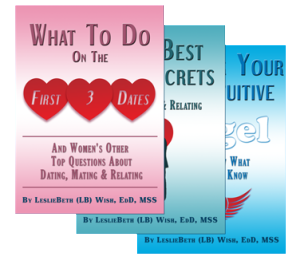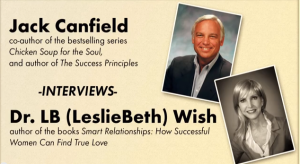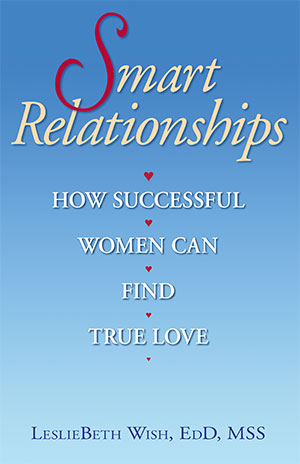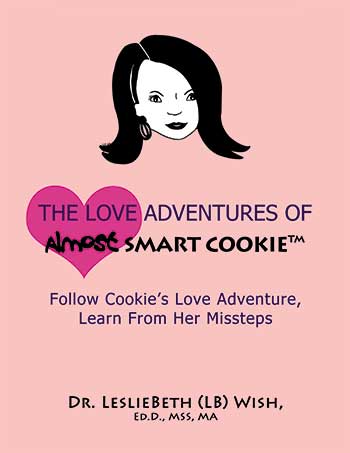Part 1 of a Series: What to Do on First, Second and Third Dates
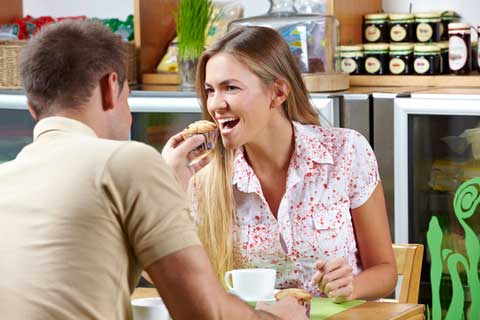 If you’ve ever looked for advice about what to do on a first date, you’ve probably received lots of advice: Make it romantic. Make it memorable—get impossible-to-get-tickets to something that makes you look special. Make it exciting. Bring a gift. Go to an amusement park.
If you’ve ever looked for advice about what to do on a first date, you’ve probably received lots of advice: Make it romantic. Make it memorable—get impossible-to-get-tickets to something that makes you look special. Make it exciting. Bring a gift. Go to an amusement park.
Confused?
These tips make me think of the scene in the movie “The Wizard of Oz” where the Scarecrow indicates which road to take by crossing his arms over his chest and pointing each hand in opposite directions.
Don’t despair. Here are the top tips that were most helpful to the women in my study about their relationship issues and to the men and women who are my therapy clients.
1. Postpone the idea of going on romantic and impressive dates. See if you can find what the following choices for first dates have in common: romantic dinners at special places or exclusive VIP access to events, places and people.
These first dates might sound good to you, but don’t choose them—yet. These selections arouse your brain’s neuro-chemicals for pleasure. Romantic dinners—often with gift included—and high profile events elevate your pleasure hormones. If you are the person who arranged the date, you feel important—even powerful and respected. If you are on the receiving end, you feel special—and even valued. Regardless whether you are the recipient or the top dog you both risk feeling prematurely close to each other because shared pleasurable experiences create positive memories that elevate mutual attraction to someone you barely know.
2. Skip the exciting—or even slightly dangerous—date. Think about what the following dates have in common: scary movies, rock concerts, helicopter rides and amusement parks. If you thought about the brain, you are on the right track. These experiences stimulate your fight or flight reactions that create an odd mix of fear and excitement. When we are afraid, one of our instinctive responses is to seek safety and emotional support with others. For example, survivors of disasters tend to feel closer to people who were with them during the calamity. Survivors often remain in touch with each other for years.
To confuse you even more, some of the neural pathways for fear, excitement, sexual arousal and pleasure overlap. So it is no surprise that after a heart-pounding rock concert or roller coaster ride, you find yourself feeling more positive and attracted to your date.
3. Choose activities that allow you to be present as you in a normal neuro-chemical state. Don’t do things that cloud your judgment. In the beginning of getting to know someone, your goal is to maximize your mindfulness and assessment abilities by minimizing over-stimulating your brain. First dates are scary enough without any extra jolts! Don’t impair your skills at reading people and your own emotional and physiological cues.
4. Make your dates resemble your real life. I hope it doesn’t come as a surprise that your life in a committed relationship will consist of a lot of mundane tasks and not so thrilling activities—grocery shopping, filling your gas tank, taking the car for an oil change, raising children or being with friends and family. True romance usually grows naturally and more slowly from good matches. (Yes—there is that mutually satisfying love-at-first-sight phenomenon, but people who experience this shared joy tend to be already in a state of mature and mentally healthy conscious and unconscious emotional preparedness. They know themselves and how to read others well.)
But for the rest of us who need to go through the getting-to-know-you process of dating, you want to keep your wits about you.
5. Consider these suggestions for where to go and what to do on a first date. If possible, date during the day and/or for a limited amount of time. Meet for coffee , brunch or lunch.
The setting in the photo shows a couple in a rather ordinary but pleasant coffee and pastry shop. They are dressed in everyday clothes and are eating in a fun and relaxed way.
You could also go to one of your community’s free activities such as charity events, boat or car shows, antique fairs, bird-watching, photography conventions, and any other event that seems interesting. Most of these events occur during weekend days and afternoons. Walk around and observe your date’s behavior. Does he or she cling, allow you to browse, grumble, show off or decide unilaterally when to leave? Does he or she dictate when and what to eat? How willing is your date to be in learning mode or trying something new? Does your date brag and compete with the instructor? Is he or she afraid to eat something different? These unstructured events teach you about taking turns, the ease or difficulty of being together, risk-taking, insecurity and many other qualities.
Another option is to do something with some of his/her and your friends. Observe your date’s comfort with strangers. Pay attention to the reactions of your friends and those of your date. If you trust your friends’ people reading skills, then you can also use this opportunity to get feedback.
Finally, evaluate whether it is a good idea to include your children. Some people recommend bringing them so you can see how your date—and your kids—interact. Too often, however, your date might be on his or her best behavior. And your children could either be little angels or monsters. My recommendation leans toward not taking them in the very beginning. Young children and teens don’t need to endure a parade of new people. Be sure, though, to let your date know that you have children!
I hope these ideas are helpful. The next article in this series will be about what to talk about and reveal about yourself on your first date.
Please tell me about your first date experiences. And please follow me on Twitter@LeslieBeth Wish and go to my website www.lovevictory.com to sign up for tips and news about my books, webinars and other things.
